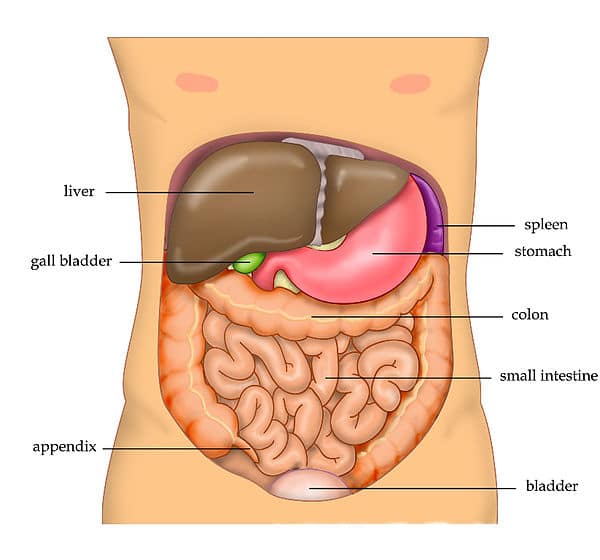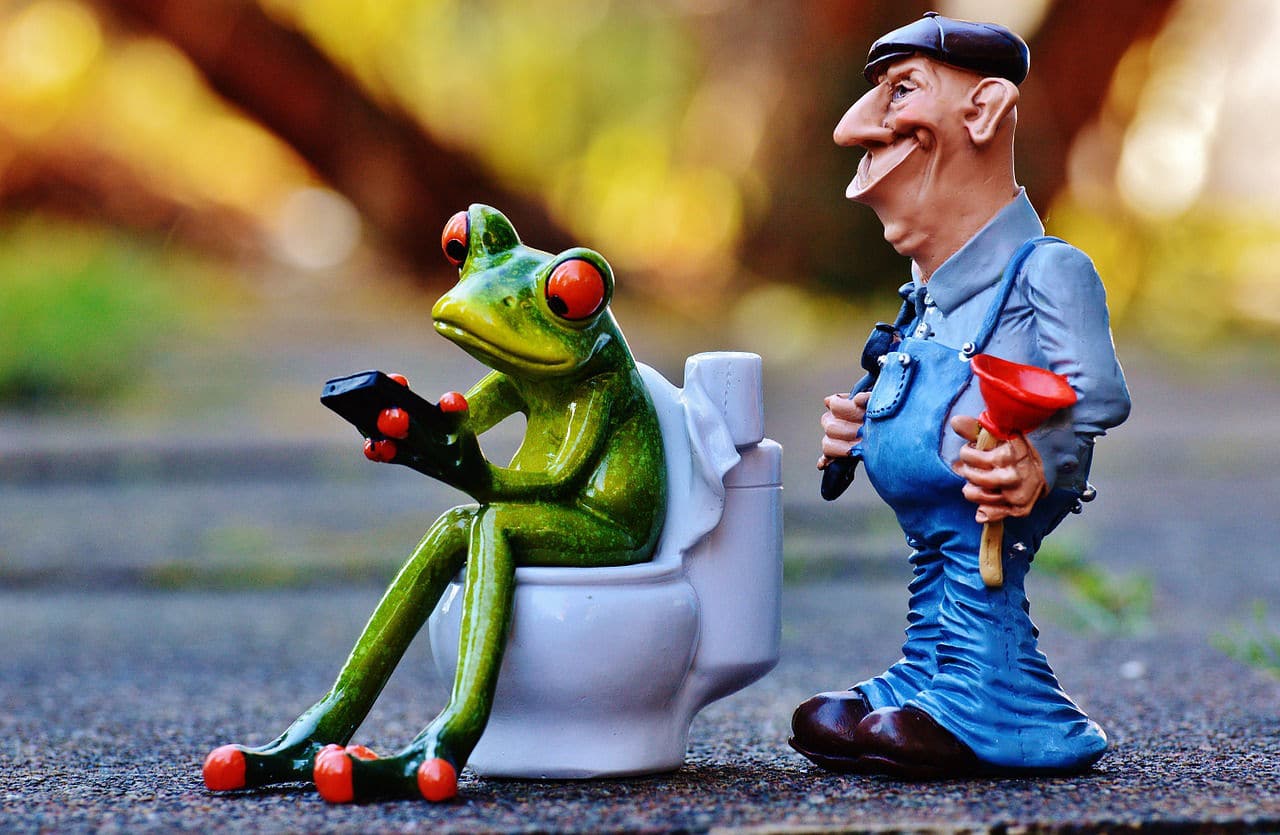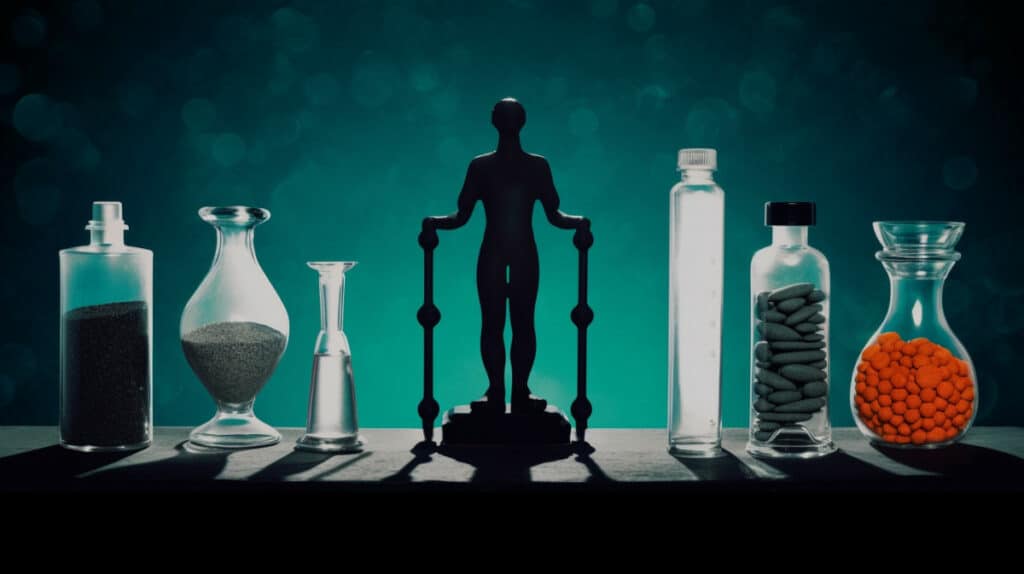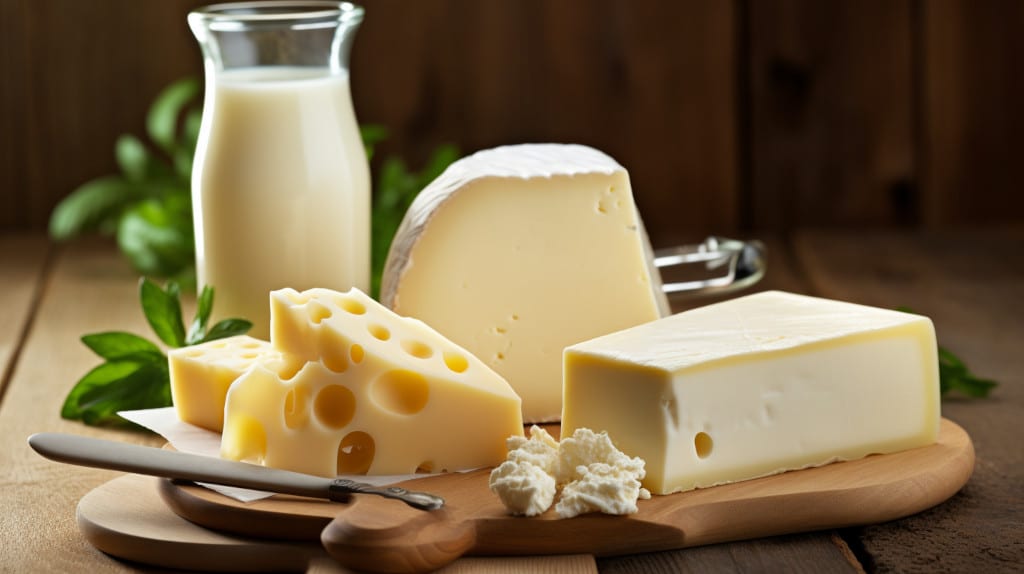Last Updated on July 7, 2024 by Max
Introduction
Constipation is one of the most harmful conditions for your health. As I mentioned earlier, the prostate is located near the rectum, and with age, it may enlarge several times in size, even pressing into the wall of the rectum. When your bowel works correctly, the feces are eliminated in time. The level of exogenous and endogenous toxins in the feces is low; the wall of the rectum performs its barrier function perfectly. Even if the content of the bowel has a high level of toxins, their exposure time to the colon’s wall is short.
Now let’s try to understand what is happening in your bowel when you are constipated. How does constipation affect your prostate? First, the balance of healthy gut microbiota may change; sulfate- or nitrate-reducing bacteria multiply, producing more carcinogenic toxins. When the concentration of toxins in your bowel is too high, they begin to leak outside, causing prostate inflammation and may lead to prostatitis or even prostate cancer.
Moreover, the colon, where all kinds of wastes and toxins accumulate, has protective mechanisms that allow functioning properly during a long life; the lining of the colorectum regenerates regularly. The prostate is an internal organ with no regenerative mechanism, so it is more vulnerable than the bowel in terms of toxicity. Therefore, constipation is dangerous for your health, particularly your prostate, primarily to its toxic effect. Toxins are getting into your blood system, body odor changes, and you may feel an unpleasant taste or feel in your mouth. What about your internal organs? All your internal organs, including your brain, are affected too. So constipation is not only an uncomfortable condition; it may be a time bomb, causing most inflammations in your body, affecting your health, making you age faster, and damaging your skin and hair.
What Causes Constipation?
Wikipedia defines constipation as bowel movements that are infrequent or hard to pass. In cases where a man goes to the toilet to empty his colon less than once every 3-4 days, he can be diagnosed with constipation.
Bowel movements between three per day and three per week are considered normal for adults. We often know why we are constipated, but sometimes it’s not obvious. When you know at least the principal reasons, you can analyze your condition and take the necessary measures to eliminate constipation.
There are many causes of constipation, but all of them can be split into two categories: various medical conditions leading to constipation and functional constipation, depending on multiple external factors leading to the slow movement of stool within the colon. Here we will focus on functional constipation.
The principal factors of functional constipation are:
- Age.
- Food.
- Medications.
- Psychological.
- Hypodynamic or sedentary lifestyle.
Age. When you get older (50-60+), your gut muscles become sluggish and contract more slowly, which makes food move at a snail’s pace through your bowel and leaves you constipated. Another problem is that with age, your gastrointestinal tract needs more time to digest the food due to reduced bile production; bile is crucial for breaking down and digesting fats. Though it’s a general tendency, your gut system can still function correctly in old age if you care about what kind of food you nourish your body and the natural health of your digestive machinery.
Diet. Low water drinking, dieting, and a low-fiber diet can result in constipation.
How much water you should drink daily may vary greatly, depending on climate and your daily physical activity. Health experts suggest eight 8-ounce glasses, which equals about 2 liters for an adult man.
Your diet must include enough fiber from fruits and vegetables, which is proven to soften the stool and decrease its transport time through your colon.
Medications. Constipation is a side effect of many drugs, including opioids, diuretics, antidepressants, antihistamines, etc. About 90% of those who take opioids develop constipation. Fortunately, stopping taking medications usually helps to normalize bowel movements.
Psychological factors. It is common when people voluntarily withhold the stool for various reasons such as fear of public restrooms, laziness, or traveling. If it happens rarely, it doesn’t cause noticeable harm to your health. Still, if it occurs regularly for a long time, it may cause general poisoning of your body, leading to inflammations in the bowel and nearby organs, like the prostate.
Hypodynamic or sedentary lifestyle. Analyzing the literature, I noticed that many sources underestimate the role of the sedentary lifestyle as a cause of constipation. It’s a sedentary lifestyle that depresses blood circulation in the lower abdominal and pelvic areas leading to malnourishment and malfunctioning of your bowel. Usually, if you are physically active, your bowel movements are perfect, and you have no issues with constipation.
What Can You Do to Avoid Constipation?
As I pointed out earlier, normalization of your stool and bowel functioning may directly improve your prostate health by decreasing the number of toxins getting into your prostate and poisoning your body.
If you suffer from chronic constipation, you should be aware of foods to avoid and foods that help improve bowel movements.
Tanin is a green and black tea component and may contribute to constipation.
Dried bilberries, cocoa-containing products (including chocolate), strong tea, too much coffee, red wines, rice porridge, semolina, and jelly may cause delayed bowel movements and result in consumption.
Inclusion of the following foods in the diet helps to empty the bowel regularly:
- Rye bread, pastries with a high content of bran;
- Vegetables and fruits, preferably unprocessed (raw), as well as dried fruits (mainly prunes);
- Cereals and side dishes of buckwheat, oatmeal, and barley cereals;
- Fresh dairy products;
- Natural pickled, fermented vegetables with a natural fermentation process (sauerkraut, pickled, barrel-chopped cucumbers, etc.);
- An increased amount of liquids (mineral and drinking water, juices, fruit drinks, compotes), as well as the beer of natural fermentation;
- Lean meat with a high inclusion of connective tissue, etc.
Fiber Supplements and Laxatives
Soluble fiber supplements such as psyllium are considered first-line treatment for chronic constipation and preferable to insoluble fibers such as wheat bran.
The use of laxatives in treating constipation is quite a controversial issue. The body gets used to the use of laxatives that stimulate peristalsis in one way or another, which causes not only a decrease in the effect of medications but also aggravation of the condition.
If laxatives are used, milk of magnesia or polyethylene glycol is recommended as first-line agents due to their low cost and safety.
Enemas can be used to provide a form of mechanical stimulation.
How to Prevent Constipation?
Preventing constipation is easier than its treatment. Moreover, it will help to keep your prostate healthy as well. Three main components of your healthy bowel are adequate exercise, fluid intake, and a high-fiber diet. If you search for ways to get rid of constipation, you’ll find all sorts of pills rejuvenating and restoring your gastrointestinal system. I really like those advertising promoters in doctor’s robes that say, you keep living your lovely lifestyle, eat what you used to eat. There is no need to push yourself to change your daily routines, but the only thing you need to do is take one pill before your meal. It will take you only 10 sec a day, and all your gut issues, including constipation, will disappear. It would be so easy if we lived in a wonderland, but in real life, you pay for your temporary relief and keep living with your problem. No matter what they put inside of that pill, they cannot restore your bowel until you change your lifestyle or start doing adequate exercises to keep your colon in proper shape.
In my personal experience, constipation, apparently, was a result of a sedentary lifestyle. I found the shiatsu acupressure, belly massage, and abdominal breathing helpful. It helped me not only to get rid of constipation and any symptoms of discomfort in the belly area, but I regained confidence that I could eat almost everything I liked without health consequences.
Anatomy of the Large Intestine
Before exercising, I guess it would be helpful to have a clear image of the large intestine to understand the meaning of each pressure or massage movement.
In humans, the large intestine begins in the right iliac region of the pelvis, just at or below the waist, where it is joined to the end of the small intestine at the cecum, via the ileocecal valve. It then continues as the colon ascending the abdomen, across the width of the abdominal cavity as the transverse colon, and then descending to the rectum and its endpoint at the anal canal. Overall, in humans, the large intestine is about 1.5 meters (5 ft) long, which is about one-fifth of the whole length of the gastrointestinal tract.
https://en.wikipedia.org/wiki/Large_intestine

Belly Acupressure and Massage
- Put your fingers together and press down with your fingertips on four areas around the navel. To find appropriate areas for the pressure, measure the width of four fingers to the right, left, up, and down from the navel. The pressure is applied with both hands simultaneously, and it must be hard enough to feel discomfort in the pressing area. Hold in this position for 10 sec, and breathe easily. Repeat the pressure ten times in each area.
- Put the palms of both hands on the navel, and exhale deeply. In this position, make ten retractions and protrusions of the abdomen and then inhale. Repeat the exercise 8-10 times.
- Massage your belly for 1-2 minutes. Stroke the stomach in the direction from the right side up to the left and down. Make a few stroking motions over the areas experiencing discomfort.
- In the toilet, exhale deeply and press down the left and lower abdomen. Hold in this position for 8-10 sec. Repeat the exercise a few times.
Usually, it takes 2-4 months to get the desired result. If you’ve exercised regularly, you’ll habitually massage or press certain areas on your stomach to help your bowel clean from waste.
I found the next video on YouTube to be the most trustworthy and effective constipation treatment. A study by the University of California showed that perineal self-acupressure helped 72% of people with chronic constipation to relieve their condition.
Conclusion
Your colon is where most of the toxins in the food may get into the blood and poison your body. The prostate health reflects better than any other organ, the chemical contamination of the food due to its vicinity to the rectum. Normalizing your bowels can significantly prevent prostate health problems and improve your everyday well-being.







Hello Max, this article on constipation is very clear and helpful in understanding the colon.
I am very impressed with your instructions on acupressure apposed to using Laxatives, have experience with acupressure and I know that it works.
Being a person that has had constipation from a very young age I have found that in studying this problem it has much to do in how we eat and it actually starts at a very young age. As young people are growing there is a tendency to eat yummy foods in an environment where everyday life is on the go and getting away from parents that they think are full of XXXX. They are very vulnerable to fast foods and the environment of today’s world. They know nothing about how important it is to take care of there bodies.
I think you know what I am talking about as we were young at some point also (O: I will say there is much more technology at our fingertips than ever before in history. But there is also much more advertising food that isn’t good for you also.
A very good example of this is the NBA Basketball series it is full of those very unhealthy foods that are poisoning us all, in every commercial they are there. They sure look good and are yummy but this is what we are living in. How do we teach our young ones healthy eating habits when we are bombarded with these fast foods. Veggies and leafy green are the antidots to Constipation.
The problems start at an older age when the body gets overload and can’t combat the toxins anymore. A younger body can up to a point but by the time we are in older age and have these problems, then and only then we look for the remedy. it makes more sense to hit the root cause at the very beginning. to me, it looks like we are losing the battle (One step forward and ten steps back!)
Keep up the great work in informing the general public this is crucial to our world today we need more people like you my motto is Always A Better Way and there is we just need to keep plugging away at it. I also like to say that information is only information unless you apply. I have a great friend how does just that and I hope there are more out there.
Thank you, Linda, so much for your extended comment.
I found, constipation, for many people is a delicate problem, that often rather not talk about or discuss. It means, pretty often we rely on the medicinal authorities and totally get addicted to what they propose. Meanwhile, constipation probably is the best example when you can cope with the issue without any medication, just with the aid of adequate exercises.
I understand what you mean; exactly we poison our body at a young age and harvesting the diseases at an old age.
I believe, it must be a task number one of any government to stop this total poisoning of their citizens starting from the very baby age.
Thank you for your encouraging words.
Have a great day!
Max.
I am completely agree with the conclusions of this article…80÷of my young patients suffering from cronic prostatitis/chronic pelvic pain…have problems with colon….constippation..diarrhea..hemorrhoids.
Thank YOU, Arqile, so much for honoring me with your time by reading my post and commenting.
I believe the impact of constipation on overall humans health and particularly on prostate conditions is underestimated. We have to realize that nowadays our gut is transporting not only food but pretty much toxins and other potentially harmful elements. And if so, then any delay in the system may cause increased inflammation in adjacent organs.
I didn’t know that about 80% of patients with prostate issues also have problems with their colon, but it was quite predictable.
Have a great day!
Makhsud